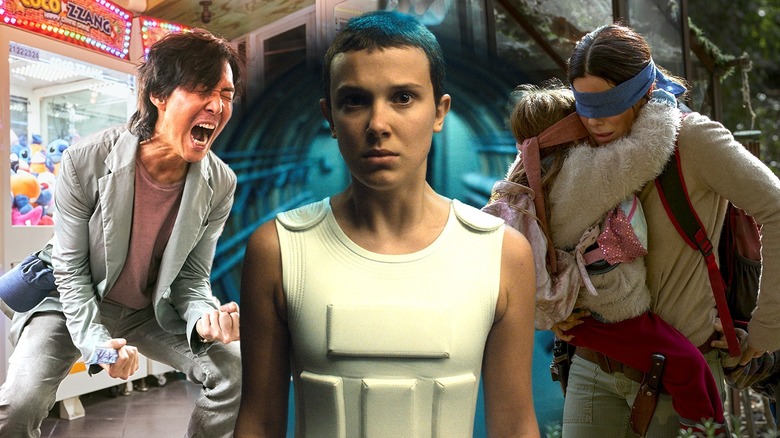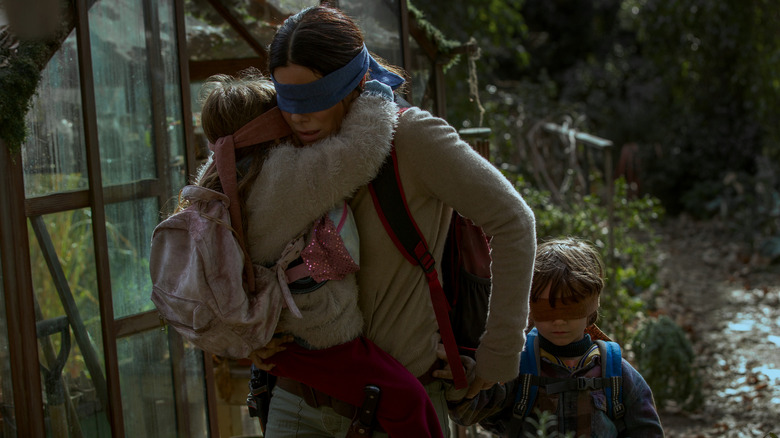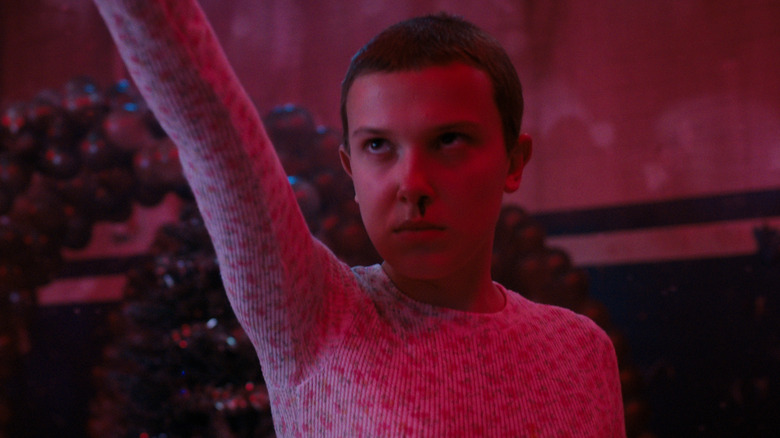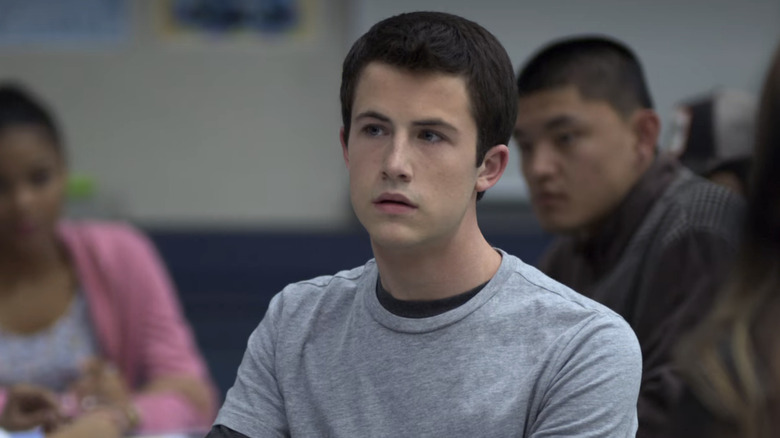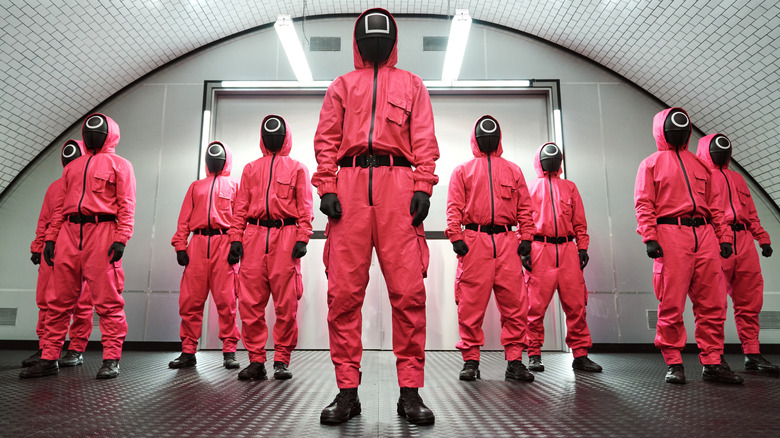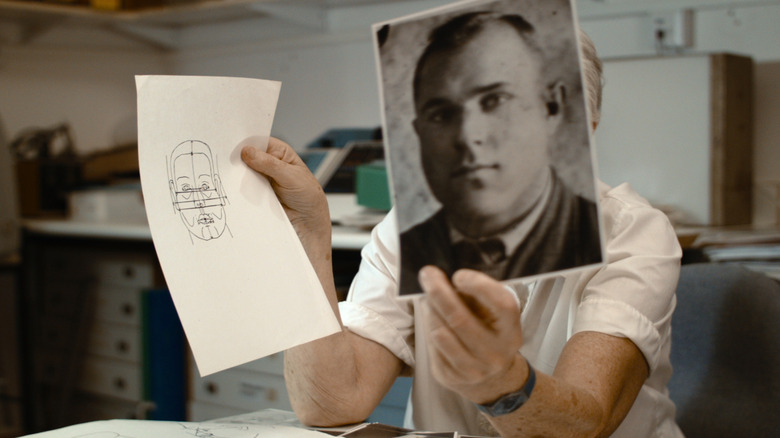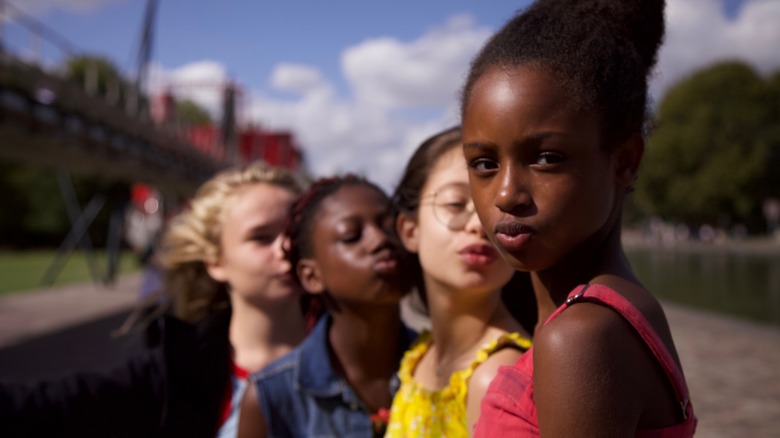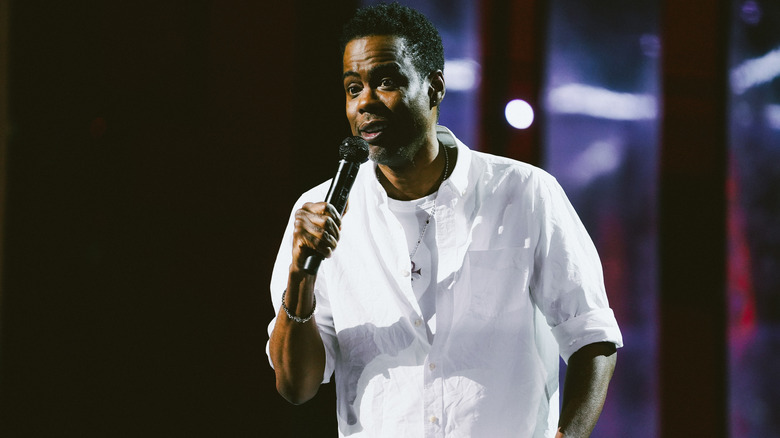Eight Times Netflix Was Forced To Edit Their Own Original Content
The name Netflix is practically synonymous with streaming itself. The company was there at the beginning, helping to usher in the modern renaissance in streaming and still remains the number one streaming platform in terms of subscribers and revenue generated. Not only a giant in the industry due to its age and user base, but Netflix also creates a seemingly endless number of original series and movies. For better or worse, there are new Netflix originals dropping constantly, and with that much volume comes a statistical guarantee that some will come with problems that need fixing.
There are dozens of shows and movies that have appeared on Netflix, only to be taken down or censored in response to viewer complaints, but fortunately for the company, only a handful of their own. Some, like the hit series "Squid Game" or the original film "Bird Box," have been changed in ways you might never have noticed. Others, like an entire episode of "Patriot Act with Hasan Minhaj," have been removed entirely — but in any case, the bottom line is that Netflix agreed to change their content after it has already seen release. Here are eight cases, times in which pressure from viewers, private interest groups, and even whole countries have forced Netflix to edit their original content after it was out.
Bird Box showed a real accident
In 2018, Netflix released their original horror film "Bird Box" to almost instant popularity. Within its first month on the platform, it had already garnered around 80 million views, owing some fraction of that popularity to its trendy, post-apocalyptic setting. Like so many others in the genre (especially those not afraid to lean on its tropes), "Bird Box" dedicates a portion of its first act to establishing its apocalyptic event through a montage of news reports and stock footage. And though the sequence is cliché, it actually commits another, far more egregious sin. Among the disaster footage was an actual clip from the real-life Lac-Mégantic rail disaster, one of the deadliest rail accidents in Canada's history.
The footage, which still survives in video reports like this one from ET Canada, was not long — around half a minute — but still left a bad impression on many viewers, especially Canadians, who were more familiar with the disaster. The actual derailment, which occurred in Quebec in 2013, claimed 47 victims and caused an exceptional amount of property damage to boot — all the fire and masses of people running made for particularly useful apocalypse footage. Making matters worse, Netflix originally refused to remove the clip, only succumbing to public outcry and roughly four months after "Bird Box" first released.
Stranger Things sparked a change in cigarette depictions
Over the years, Netflix has faced wave after wave of criticism alleging that its original programs contain an excessive number of depictions of smoking. It wasn't until a comprehensive 2019 study by the anti-smoking Truth Initiative, however, that Netflix finally responded, and it's no surprise that they did — the study found Netflix to be the worst offender when it came to smoking depictions by a landslide.
The study found that not only did Netflix originals feature a surplus of smoking scenes, but they did so far more than cable series, and seemingly did so more and more each season. Explicitly adult series like "House of Cards" and "Orange is the New Black" were major offenders, but surprisingly, "Stranger Things" was the worst of all, with every single episode showing at least one character smoking. That last bit of info was the straw that broke Joe Camel's back, as the series was (and still is) rated TV-14 and wildly popular, potentially granting it more power to influence children than any other series studied. In response to the growing criticism, Netflix vowed to remove all depictions of cigarettes and e-cigarettes from all future shows rated TV-14 and under, as well as all movies rated PG-13 and under.
13 Reasons Why had to be re-edited ... alot
The fact that the Netflix original series "13 Reasons Why" was re-edited multiple times for its depiction of suicide is either totally bewildering or completely expected, depending on your interpretation — the show is, after all, entirely centered around the suicide of one of its characters. The series's premise is that high school student Hannah Baker dies by suicide and leaves behind information explaining the lead-up to the act to her friend Clay Jensen. In other words, the story exists, and is entirely centered around, the very action that Netflix eventually edited out, although given the extremely sensitive nature of the topic, it's an understandable change.
After an initial outpouring of criticism, Netflix responded with its own wave of edits. First, it added trigger warnings to three of the more controversial episodes, followed by a warning before the first episode, and a warning video before the Season 2 premiere. Finally giving in to overwhelming demand approximately two years after the initial release of "13 Reasons Why," Netflix removed the scene depicting the actual act of self-harm. Even with added warnings and its most graphic scene removed, "13 Reasons Why" still couldn't escape controversy.
If you or anyone you know is having suicidal thoughts, please call the National Suicide Prevention Lifeline by dialing 988 or by calling 1-800-273-TALK (8255).
Squid Game broadcast a real phone number
By any number of metrics, the Netflix original series "Squid Game" dominated the ending months of 2021 and the beginning of 2022. Though the term "smash-hit" is thrown around a lot, there are few series that earned it more than "Squid Game," which as of this writing, remains the most-watched series in Netflix history. It was released to widespread critical acclaim, earned a slew of major award nominations, and is already renewed for Season 2 in 2024, virtually guaranteed to further swell its already-massive cultural impact. With all the success, you might be surprised to hear that Netflix went back and re-edited "Squid Game" scenes, and yet they did — right in the middle of its viewership surge, too.
In the series, would-be contestants of the titular games are given a card with a phone number to call in order to enter. Unfortunately for one extremely unlucky real-life Korean citizen, the number was also real, and it was theirs. In this way, the popularity of "Squid Games" worked against it – the owner of the number was inundated with calls — apparently up to 4,000 per day — as were multiple other people with numbers similar to the actual one. In response, Netflix went back and edited the number out of its episodes, and even the show's trailer.
The problematic maps in The Devil Next Door
If you haven't seen "The Devil Next Door," it's understandable but unfortunate. The Netflix original documentary revolves around John Demjanjuk, a man accused of being the notorious Nazi "Ivan the Terrible," an especially violent guard of the Treblinka extermination camp in World War II. It's a genuinely fascinating case that never settled on a simple answer – John Demjanjuk died before his final innocence or guilt could be fully determined (at least, according to German law). Many fans and critics found the facts of the case intriguing, but it's the fictitious part of the documentary that forced Netflix to take it back for edits.
To help illustrate the events of World War II, "The Devil Next Door" features maps of the extermination camp locations, although producers seemingly sourced the maps incorrectly — according to Polish Prime Minister Mateusz Morawiecki, dangerously so. The maps mistakenly used modern European borders instead of WWII-era borders, thereby incorrectly placing camps in Poland. In Morawiecki's words, the mistakes are "not only incorrect, but [deceive] viewers into believing that Poland was responsible for establishing and maintaining these camps, and for committing the crimes therein" (via The Guardian). As a result, Netflix edited the scenes featuring the maps to include text that points out and corrects the mistaken borders.
The controversy over Cuties
In case you missed it, the 2020 Netflix drama "Cuties" was released to a wave of backlash. It also drew backlash before its release and generates fresh controversy to this day. It's not surprising to anyone who's heard of "Cuties" that its controversy forced Netflix to change a few things. What is surprising, however, is how little they ended up changing: merely some promotional images created to drum up interest in the film ahead of its wide release.
When "Cuties" was first released in France, and even when it screened at the Sundance Film Festival, it sparked no controversy of note. As soon as Netflix began advertising it for a global release, however, a multitude of people and private interest groups (mainly, though not exclusively, based in the U.S.) began rallying against the upcoming film. The first complaints came from the initial promo poster, which featured the stars, all of them female minors, dressed in revealing clothing and assuming allegedly provocative poses. Netflix was quick to remove and replace the poster, but has remained firm in its defense of the movie itself, even to this day. In 2020, Netflix even faced legal backlash for the film in the form of a felony indictment from a Texas Grand Jury, though no resolution has been reached as of this writing (via The Hollywood Reporter).
Hasan Minhaj insulted an entire country
With so many late-night comedy shows built around parodying world news, it's genuinely shocking that more of them haven't angered other countries to prompt their own cancellation. Unfortunately for comedian Hasan Minhaj (formerly of "The Daily Show"), he is one of the few who has ever lost an episode to censorship, as the episode "Saudi Arabia" from his Netflix original series "Patriot Act with Hasan Minhaj" royally ticked off the Saudi government, forcing Netflix to pull its plug.
In the episode, which is still available on Netflix's YouTube page, Minhaj criticizes the Saudi government and royal family, specifically Crown Prince Mohammed bin Salman, for their role in the 2018 murder of journalist Jamal Khashoggi (as concluded by a CIA investigation). Following a complaint that came directly from the Saudi government, Netflix then pulled the episode from Saudi Arabia. For their part, Netflix defended Minhaj's right to free speech in a statement, saying "We strongly support artistic freedom and removed this episode only in Saudi Arabia after we had received a valid legal request — and to comply with local law" (via The Hollywood Reporter). Ironically, the episode itself forced another party to edit their material, as well, when it shed light on an offensive phrase found in a manual for U.S. troops serving in Saudi Arabia.
Chris Rock's Will Smith blunder
It was the slap heard 'round the world. When Will Smith stormed the stage and slapped Chris Rock at the 2022 Academy Awards, the world couldn't stop talking about it. The incident dominated social media, inspiring countless opinion pieces and even more memes. In the following months, Rock kept mostly silent about the controversy, mentioning it only rarely and reservedly (especially for a career comic), until his Netflix original stand-up special, "Chris Rock: Selective Outrage." Then, when he finally revealed his every thought in the special's live global broadcast (a first for the platform), a rare flub forced Netflix to edit the performance for all subsequent streaming.
Rock's gaffe was a minor one. He mistakenly called Smith's 2015 movie "Concussion" by the name "Emancipation," but later recognized his mistake and corrected it. Even so, Netflix decided to cut the mistake and edit the surrounding joke into a more streamlined version. Watching the special now, you may notice a small disclaimer in the center of the playback controls that reads "streamed live and edited," though as we know, it is far from the only Netflix original to be edited after release.
